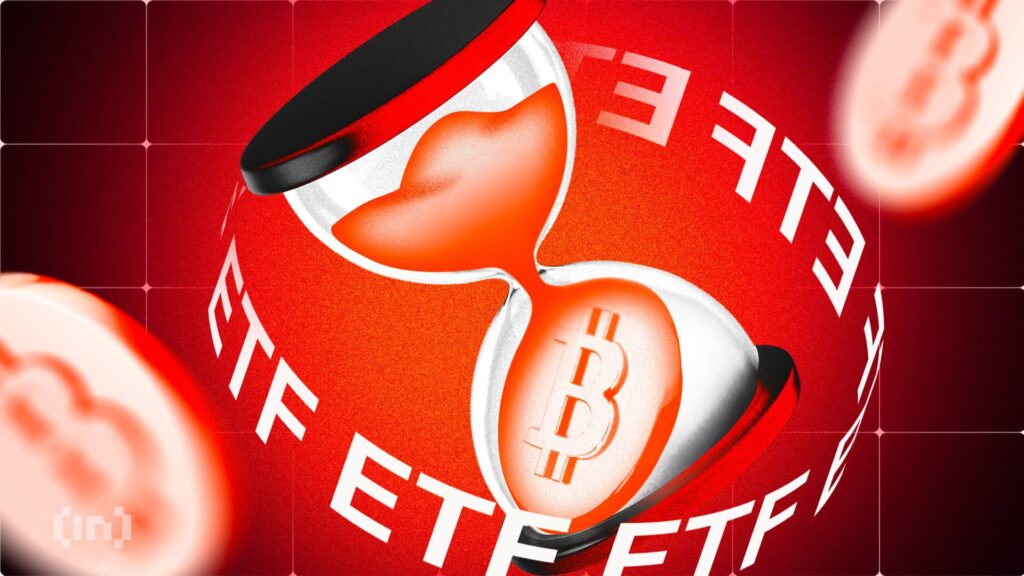Spot Bitcoin ETFs pose a threat to the South Korean market

According to a recent analysis by the Korea Institute of Finance (KIF), the introduction of spot bitcoin (BTC) exchange-traded funds (ETFs) in South Korea could cause significant economic disruption.
The report highlights the unique challenges the South Korean market may face, despite the global trend of approving crypto-related ETF products.
Potential problems with Bitcoin ETFs in South Korea
The recently approved introduction of spot Bitcoin ETFs in various international markets has sparked significant discussions in the South Korean financial community. KIF researcher Lee Bo-mi expressed concern about the potential negative effects of these products in a report titled “Approving Foreign Virtual Asset Spot ETFs.”
“Investors may receive institutional protection if the offering and trading of virtual property-related products is permitted. “While financial companies have the benefit of making a profit, there are also side effects,” she explained.
Read more: What is a Bitcoin ETF?
Lee listed several side effects associated with the introduction of Bitcoin ETFs. These include increased inefficiency in resource allocation, exposure to risks associated with virtual assets, and disruption of overall financial stability. Lee emphasized that while institutional investors may benefit from these financial products, the broader economic implications could be detrimental.
For example, earlier this year, the US Securities and Exchange Commission's (SEC) approval to declassify Bitcoin ETFs caused significant price volatility. Although the price of Bitcoin has risen 40% in five months, the volatility and speculative nature of virtual assets pose many risks. The analyst warned that similar volatility in South Korea could derail financial markets.
Global trends and regional differences
Other financial regulators around the world have approved similar crypto-related products. In April 2024, the Hong Kong Securities and Futures Commission (SFC) approved Bitcoin and Ethereum ETFs. Subsequently, the United Kingdom's Financial Conduct Authority (FCA) followed suit in May 2024.
However, each region has adapted its approach to these financial products, reflecting different regulatory environments and market conditions. For example, the Hong Kong spot Bitcoin ETFs have introduced a cashback mechanism. This approach differs from the much more difficult spot redemption method used in the US.
On the other hand, the UK approach limits investments in these ETFs to institutional investors. These regional differences highlight the complexity and potential risks of integrating such products into traditional financial systems.
Lee warned that the introduction of Bitcoin ETFs in South Korea could mislead market participants into perceiving virtual assets as fully guaranteed and stable investment options. This misperception can cause large amounts of institutional funds to flow into highly volatile virtual assets.
As a result, this creates an unexpected financial situation. Moreover, the resulting financial instability will further exacerbate inflation by forcing financial institutions to divest from traditional assets.
In her report, she emphasized the need for strong regulatory measures to mitigate the risks associated with virtual asset-based ETFs. She argued that the lack of regulation and investor protection mechanisms could seriously damage the South Korean market.
Read more: How to trade Bitcoin ETF: A step-by-step approach
The rapid growth of the virtual property market and the proliferation of related financial products require a careful and regulated approach. Lee called for comprehensive regulatory measures to protect the financial market and protect investors. The impact of virtual assets on the financial system remains uncertain, highlighting the urgent need for regulations that can adapt to changing market dynamics.
Disclaimer
All information on our website is published in good faith and for general information purposes only. Any action the reader takes on the information found on our website is at their own risk.













